The Independent's journalism is supported by our readers. When you purchase through links on our site, we may earn commission.
Josh O'Connor: 'Everything I could ever possibly dream of, I’ve done it'
The Independent sat down with the Bafta nominee for an extended chat about ‘God’s Own Country’, ‘Peaky Blinders’ and everything in between
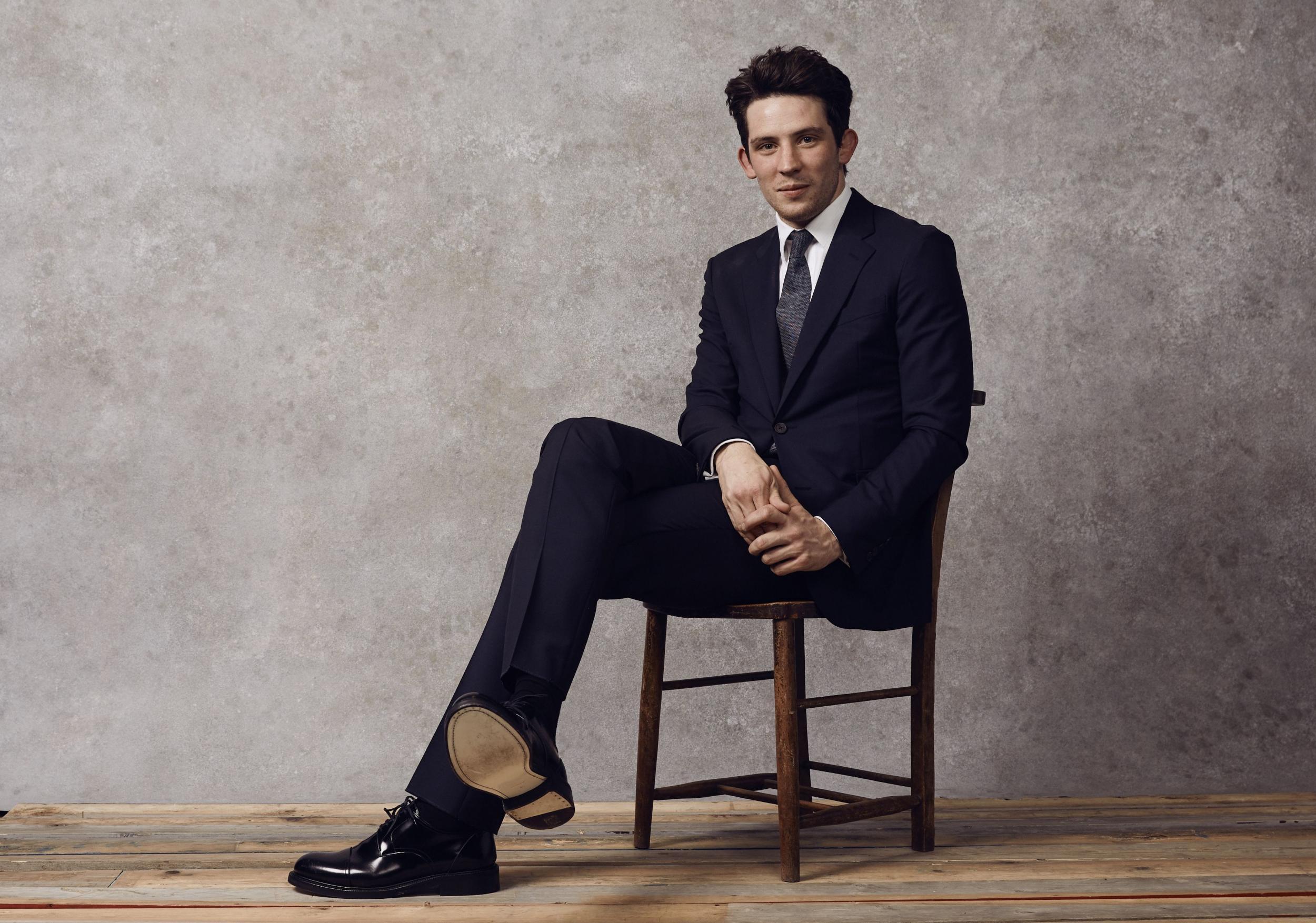
For many people, the idea of working as a full-time actor is an impossible pipe dream, unachievable for anyone without a million industry contacts. Josh O’Connor never thought like that. From a very young age, there were only two future careers – either become a football player or an actor. Thankfully, the 27-year-old was not the best striker around, resulting in a career on stage and screen that has ushered in one of the year’s best performances in God’s Own Country.
Rightly called one of the best British directing debuts of the past decade, Francis Lee has created a wonderful piece of cinema that has been praised to high heavens by critics. At the film’s centre is Johnny Saxby, an alcohol-drenched Yorkshire farmer falling helplessly in love with a Romanian worker named Gheorghe Ionescu (Alec Secareanu). O’Connor plays Johnny with an authenticity rarely seen on screen – a performance that has led to a best actor accolade at the British Independent Film Awards (Bifa) and a nomination for Bafta’s EE Rising Star award.
As many interviewers have already noted, O’Connor bears little to no resemblance to Johnny. Whereas the character is abrasive, aggressive and has a thick accent, the actor behind the mask comes across as bubbly, charming and well spoken. “To audition, I had to self-tape a couple of scenes,” he says. “I did two scenes and sent them over. Francis apparently said: ‘Shit, we’ve found our kid. The only trouble is he looks really troubled and difficult to work with.’ Then he went: ‘Oh shit, he’s posh.’ That was the biggest compliment ever.”
Sitting in a bay window looking out over Piccadilly Circus, O’Connor seems remarkably comfortable. A day of speaking to journalists awaits, but there’s excitement behind those eyes, an eagerness to talk. Simple questions get extended essays as answers – again, the complete opposite of the remarkably silent Johnny.
So, where to begin our prolific conversation when O’Connor has already starred in TV shows such as Peaky Blinders, Ripper Street, Doctor Who and The Durrells, along with roles in the films The Riot Club, The Program and Florence Foster Jenkins? Let’s go back to the start.
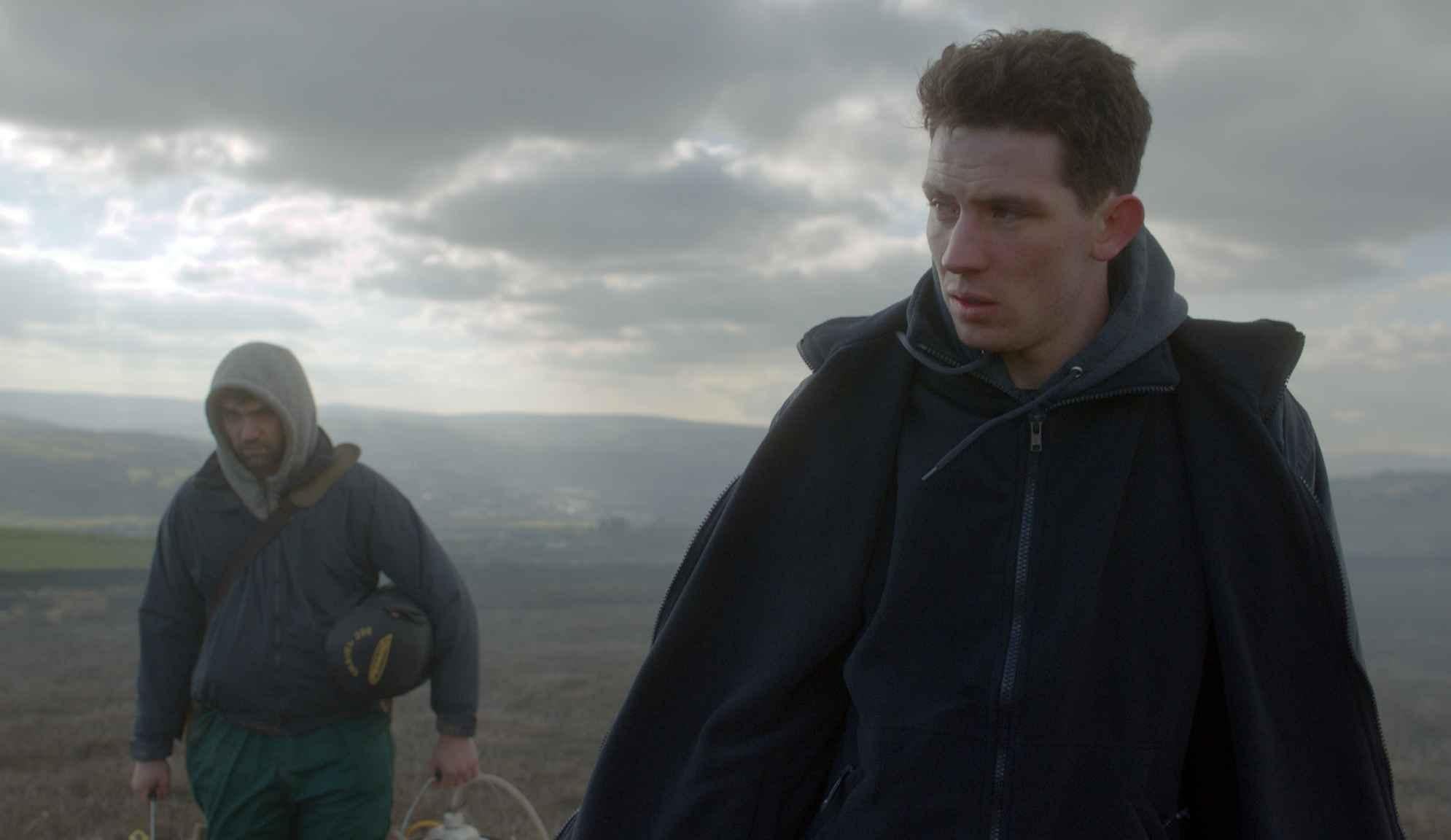
O’Connor – so says the internet – grew up in Cheltenham. “Well, we lived in Newbury first, until I was five,” the actor says. “Then we went to Cheltenham, which is lovely, a really sweet town. We lived surrounded by hills. It was the best place to grow up.”
His first acting experience came very early on. First, there was a production of The Wizard of Oz which saw O’Connor take to the stage aged just seven (“I loved it,” he adds). Come secondary school and the budding teenager was taking part in various productions. Unfortunately, though, the school – St Edward’s School, Cheltenham – was more concerned with academics than drama and the arts, something that proved difficult for O’Connor who has dyslexia.
“Drama at my school – you chose drama because you didn’t want to do too many serious subjects,” he says. But that all changed when gearing up for GCSEs. “This drama teacher came in who had an unbelievable wealth of knowledge about theatre. All of a sudden we were going on school trips, seeing these amazing plays by the likes of Samuel Beckett. My whole world went from ‘This is really fun’ to ‘This is fascinating to me’. Before, I would go to an English class and read Shakespeare and find it infuriating. Now, suddenly dyslexic Josh could read Romeo and Juliet and, while not necessarily understanding every word, I could visualise the theatrical magic. I became obsessed.”
From there, theatre became a semi-escape from the remoteness of Cheltenham. Where other kids were reading the Harry Potter books, O’Connor was absorbed in Shakespeare, able to visualise what was happening. “They were far more magical,” O’Connor says. “There is something about being in a remote town where anything other than green fields, trees and Saturday football club is very exciting and thrilling. I loved that childhood because everything beyond that world is so exciting.”

Watch Apple TV+ free for 7 day
New subscribers only. £9.99/mo. after free trial. Plan auto-renews until cancelled.
ADVERTISEMENT. If you sign up to this service we will earn commission. This revenue helps to fund journalism across The Independent.

Watch Apple TV+ free for 7 day
New subscribers only. £9.99/mo. after free trial. Plan auto-renews until cancelled.
ADVERTISEMENT. If you sign up to this service we will earn commission. This revenue helps to fund journalism across The Independent.
All that time, O’Connor’s parents were supportive. I ask how they reacted when he told them – an English teacher (father) and a midwife (mother) – that he was going to be an actor. “My mum likes to think it was a foregone conclusion [Note: also the name of David Brent’s band, but we’ll talk about that later]. There’s never been a moment where I was like, ‘I’m going to be an actor’. I never had any fear.”
They never said get a real job?
“I worked at Waitrose for a bit. And River Island. But I never had fear about being an actor. I was talking to my brother the other day and we were saying it’s weird that I went to drama school with all these extraordinary actors who have never worked or are no longer actors. That realisation about how lucky I am, to do what I do, it’s shaken me up. I told my brother ‘I never doubted it’. I had, not arrogance, but single-mindedness. If my parents had any fears, they didn’t share them with me.”
Would you follow the same path today?
“When you’re younger, you’re blind to failure. Only now do I look back and go ‘Acting’s such an unreliable profession’. I’ve had such a lucky run of it. If I had known what I know now, I would have been terrified. I was just like ‘I’ll do that acting thing!’”
Drama school was the next step for O’Connor. The whole system, he explains, is highly competitive, with thousands of applicants for very few places. After being driven up and down the country by his parents, the budding actor was set on Bristol Old Vic Theatre School. “That’s the one I walked into – these two old, beautiful white Clifton houses – and you’re doing a lesson on the floorboards of a living room. I came away so excitable, knowing that’s where I wanted to go. And that’s where I got in and had an incredible three years with an incredible group of actors. My first time away from home, so I was wide-eyed and loving it.”
Bristol Old Vic was not a typical university experience, keeping O’Connor occupied from “7am to 7pm, five days a week, sometimes six.” The work paid off; during his third year, O’Connor signed on with an agent who helped land the actor gigs while working in a Hackney pub. His first professional work was two lines on the ITV show Lewis, followed by a few more lines on Doctor Who. O’Connor even wrote his own play that was put on at the Old Red Lion in Angel.
“After a year and a half, I got The Riot Club, which was a play called Posh,” he says. “It was huge to me, absolutely massive. It was nine boys – including Douglas Booth, Sam Claflin, Max Irons, Matt Beard – they were the ‘it’ boys at the time. All of them knew each other, except they didn’t know me. They took me under their wing and I had this incredible moment where I thought I could be considered for that kind of work.”
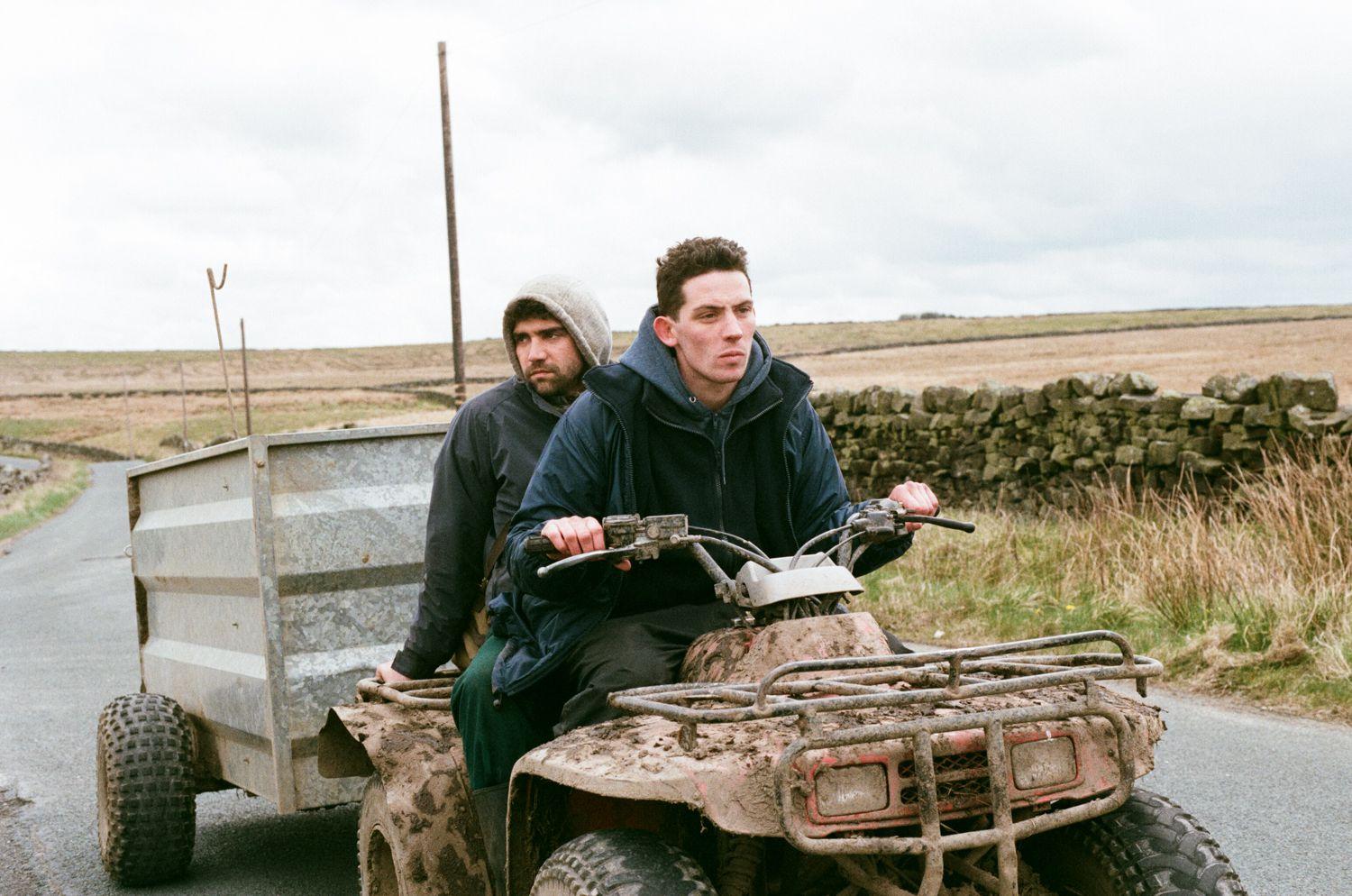
Getting involved with The Riot Club was relatively remarkable in itself. O’Connor actually auditioned for all the main parts, only landing the role because someone dropped out at the last minute. “That led to my first professional play at the Southwark Playhouse – Farragut North by House of Cards’ Beau Willimon. Then I went to the Donmar Warehouse, then the RSC, which was a dream for me. And all the while, I was doing all these little bits, small indie films along the way.”
Taking part in indie movies was a revelation in itself. Cheltenham offered a particularly limited cinematic spectrum, having “one Odeon that only played mainstream films”. After doing those smaller projects, though, O’Connor became “obsessed with the process of doing films”. “I loved it,” he says. “That’s when I made a conscious effort to go watch four or five films a week. I went from silent films to watching French new wave cinema. I became entrapped by it all. That’s when I knew I wanted to do film. The moment you start looking at film from a critique point of view – there’s a difference between watching a film as an audience and with a critical point of view. I think the combination of the two is the best thing in the world. I will definitely make a film at some point.”
An interjection: our conversation here turns to The Office – the UK version, featuring Ricky Gervais as the character David Brent. O’Connor explains how he and a housemate are obsessed with the show and Gervais, often making references to the show much to his own amusement (see the note earlier). After praising the comedian’s early podcasts with Karl Pilkington, we move on.
“Ultimately, I had no expectations that I was going to do big movies,” he says, back on subject. “I certainly never thought I was going to be a leading actor. Everything I did was exciting to me. Now, looking back, I’m glad I had that slow-burn trajectory because it’s a great way of training.”
Following The Riot Club and the Donmar production (Versailles), O’Connor went on holiday to Tenerife by himself. “I ended up in an empty hotel with four or five elderly couples, and Mike Skinner from The Streets,” he says. “It was such a bizarre place. I wanted to get away after that play – it was one of my favourite theatres and probably the best play I’ve ever done – and I got a phone call halfway through and they said I had that Peaky Blinders thing.”
O’Connor confesses he forgot completely about auditioning for the show, the first season of which had already aired, because “it was just, walk into a room, have a chat, then leave”. Soon enough, he was on set alongside Cillian Murphy and Tom Hardy. And although a big deal, the real learning curve came when working on another BBC drama, Ripper Street.
“I did Ripper Street for three and a half, four months,” he says. “At the time, it didn’t seem that mad, but after I realised how important that was. Learning what it’s like to be on a TV set for an extended amount of time, working with Matthew MacFadyen, Jerome Flynn – all these guys who were so brilliant.”
During this time, O’Connor also starred in Bridgend, a controversial film about suicides in South Wales. Playing a leading character, the actor fully emerged himself in the role, moving to Wales for a time, adopting the accent, and going “almost method”. Bridgend also led to O’Connor being exposed on the festival circuit, but not gaining quite the exposure God’s Own Country would finally grant.
“Bridgend was all great training,” he says. “But the leap is when you do a film like God’s Own Country and the public – people beyond festivals – see it. That’s a whole different kettle of fish that’s quite hard to navigate. Bridgend, I never felt that exposed, not in that way. It’s a lovely thing for people to see a film if they like it, like God’s Own Country. It can be hard otherwise.”
Have you got to a point where you’re not doing every job that lands and actually choosing projects?
“We’re at a point now when the options are thicker and wider. But, essentially, God’s Own Country has opened up a load of jobs I might not necessarily have been in that same bracket for before. Somebody told me that Olivia Coleman once said that ‘You do a job and you think it’s going to put you at the front of a queue. But, actually, it just puts you at the back of another queue’. That’s so true. You think Matt Damon’s at the front of a queue, but he’s probably in the middle, behind Leonardo DiCaprio and Daniel Day-Lewis. I guess Daniel Day Lewis is closest to being at the front of ‘the’ queue.”
Does it feel different now? After God’s Own Country?
“Definitely. Everything I could ever possibly dream of, I’ve done it. Now everything is a bonus. The difference now is I know what I can do and I believe in myself. I feel like I’ve matured in terms of taste. If I read a script and I like it – or I know I’m not right for it – I can tell a director I’m not right. I’m honest with people. I will say there are better actors than me. That’s a nice feeling.”
Before God’s Own Country, O’Connor had very little inkling that the film would be quite so successful. The director, Lee, had only acted before, never actually helming a project. Only after being nominated for the Grand Jury Prize at Sundance – with Lee winning the World Cinema Directing award – did O’Connor realise things were about to change. And what a movie to find success for, an astounding piece of cinema that marks the actor’s best work and saw him finally go full “method actor”.
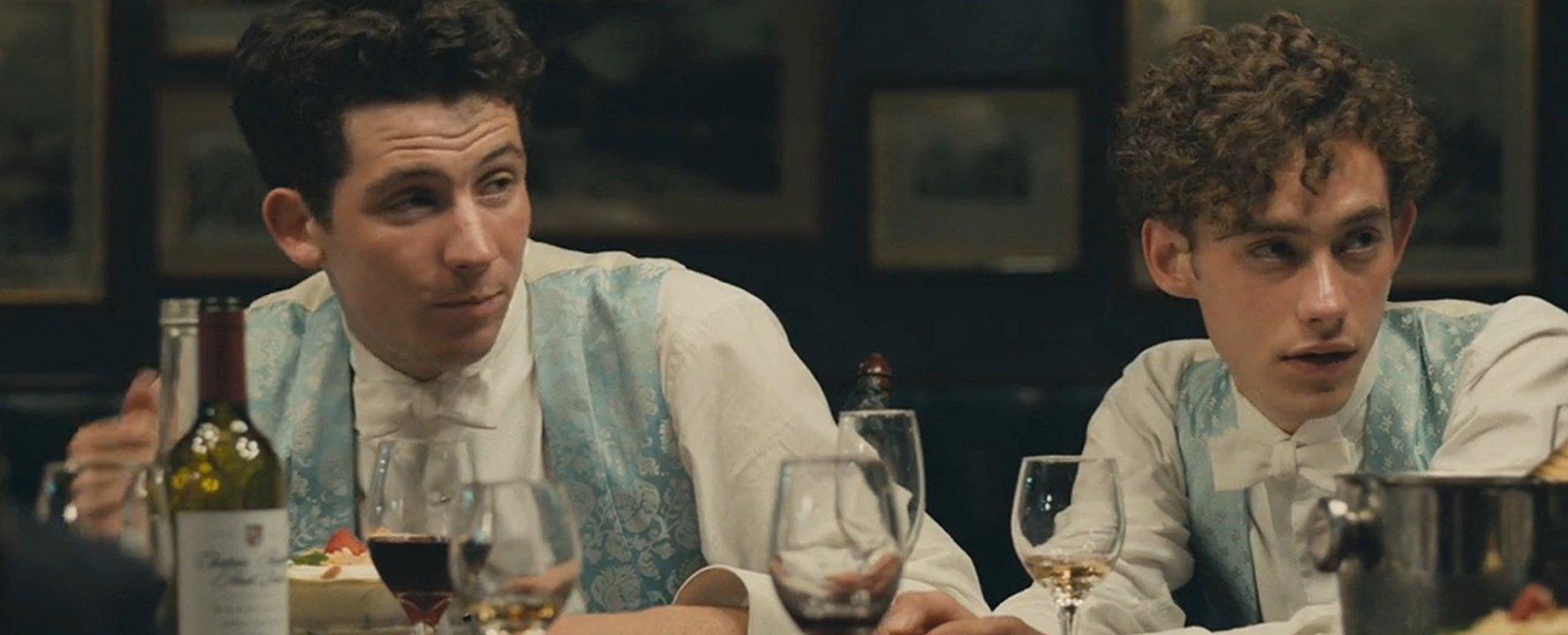
“It’s a weird one because, we imagine ‘method acting’ is Daniel Day-Lewis living as that character at all times,” he says. “It wasn’t like that. I spoke in the accent and didn’t speak to anyone on set, minus an interaction with Francis and Alec when I had to. I worked on the farm for real. It was all about focus. Basically, acting is being a child. You know when you play cowboys when you’re a child? It’s basically that I get to play that all the time. Why wouldn’t you just extend that? It was partly for fun, partly for focus. And now I know that’s definitely the best way to work.”
O’Connor adds that he loves hearing about Day-Lewis’s various escapades, admiring his work on There Will Be Blood. This marks the second time O’Connor has spoken about the three-time Oscar winner – would he count Day-Lewis as his biggest inspiration?
“I think so, I’m such a fangirl,” he says, before retracting. “Wait – I was just about to go full David Brent. I was about to say ‘Daniel Day-Lewis isn’t my favourite actor though, my favourite actor though…’ Another Brent quote.” O’Connor then explains: “David Thewlis was this huge influence on me. Daniel Day-Lewis is a perfect example that everyone knows. But David Thewlis – I remember seeing him on screen and thinking, ‘There’s a guy who’s not traditionally beautiful, but I recognise him’. He’s an everyman. He plays these characters that are so human, so powerful. Naked was the first time I saw him. I’ve seen him in everything, I think.”
Part of God’s Own Country’s realism comes from the accents, and O’Connor spent a long time working on an accent with a dialect coach. “I asked Francis to bring one in because I wanted it to sound authentic. There are different accents – from Keighley [where the film is set] to somewhere four miles up the road, in Bingley. I wanted it to be so legit. We got interviews from people in the area, and found those sounds.
“In the three weeks leading up to the shoot, I went to the Asda in Keighley and I asked a woman [O’Connor slips into the accent] ‘Where do I find the cheese strings?’ And then she went ‘You’re not from round here’. And I went ‘Oh shit!’ She added ‘You’re from Bingley!’ I thought ‘Not bad!’ It was a big process.”
It’s interesting that you don’t want to play someone close to yourself. Is that because it’s almost too revealing?
“Exactly. Acting is essentially working with empathy. Sometimes it’s really hard finding empathy with yourself. That’s the hardest thing. Every character you play is an extension of yourself, and you find those perhaps suppressed parts. There were parts in Johnny, that anger, that was in me when I was a teenager.”
How did you find the intimacy of God’s Own Country? Those sex scenes are very close.
“I think it was scary for Johnny, the character. I never found the nudity scary, though. All of those scenes are 100 per cent necessary. But I felt weird for Johnny because he was never ready to be intimate. I remember that second sex scene – where Gheorghe is teaching Johnny to be intimate – being so nervous for Johnny. How on earth is he going to engage on an intimate level? Because all the other sex came from a place of anger. The perfect way to get out his anger was either having a fight or f**king a guy. It was scary for him, but not for me.”
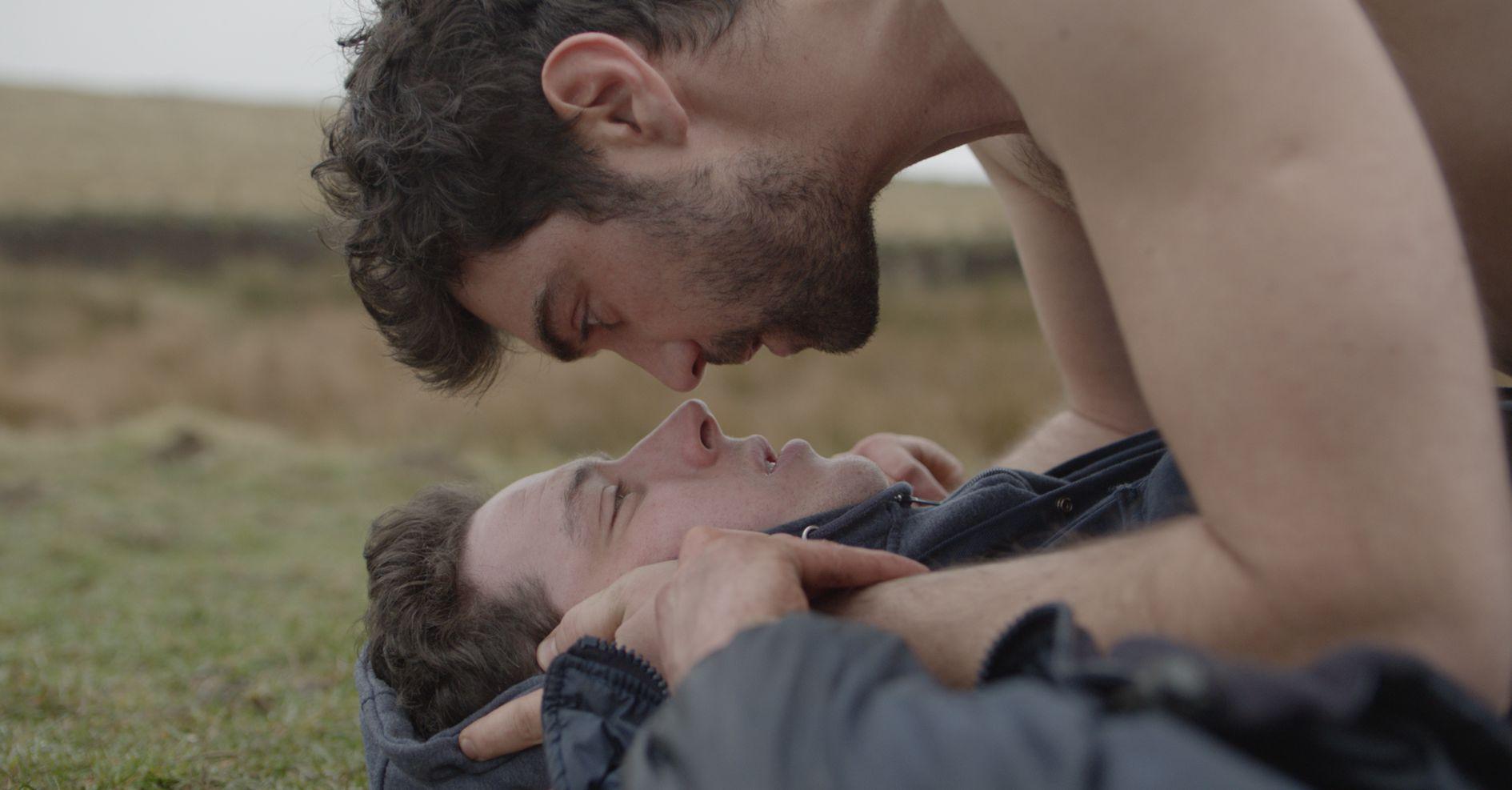
Many of the projects O’Connor has worked on have tackled these large themes – Bridgend looked at suicide, God’s Own Country at the struggles of keeping a family afloat in the countryside and the pressures of that life. Those things, the actor says, are what makes for dramatic cinema and are the makings of great cinema. However, that doesn’t mean we’ll only be seeing O’Connor in bleak projects from now on.
“I don’t want to be bleak, I just want people to get lost,” he says. “One of the best things that’s happened was my mate watching God’s Own Country and saying: ‘That wasn’t you, after 10 mins I forgot that was you’. That’s the best compliment. Hopefully, I can continue to do that. Not because it’s interesting to forget Josh, but because I’m selling something real. I don’t want to shortchange an audience. If an audience can grasp and see something reflected from the real world, that’s what you want.”
The dream, O’Connor says, is to continue playing characters like Johnny. And with a Bifa victory for best actor, along with a Bafta nomination (“It’s a Bafta, which is something I never thought I would be nominated for”) and an upcoming part in the BBC’s adaption of Les Miserables, there will surely be many more great performances from O’Connor to come.
Quick-fire questions with Josh O’Connor:
What are your five favourite films?
Raging Bull – a classic. The 400 Blows by François Truffaut. There Will Be Blood is 100 per cent my favourite film. Also, Love Actually. It’s awful in many ways, but I adore it. It’s a beautiful film. Emma Thompson’s performance always has me in tears. And Le Grande Bellezza (The Great Beauty). I have so many favourite films.
What’s the most starstruck you’ve been?
This probably doesn’t sound that impressive but at the Bifas I met Jamie Bell and Johnny Harris – who I love – and that night I took home the award. I was stood talking to them after the award, and I did pinch myself. Jamie Bell is an extraordinary actor, and Johnny Harris in This Is England ’86 – it’s the most powerful television I’ve ever watched. He’s an extraordinary actor. That was a combined feeling of, ‘I’ve never won anything and I’ve won something and here are two of my idols’.
What does the EE Rising Star mean to you?
It’s a Bafta, which is something I never thought I would be nominated for. It’s pretty incredible to be up against these people. Just look at Daniel Kaluuya, that’s one of the best performances of the year in Get Out. Timothee Chalamet (Call Me By Your Name), unbelievable. Florence Pugh (Lady Macbeth), unbelievable. Tess Thompson (Thor: Ragnarok). They’re all incredible.
Your next project, Les Miserables, how’s that going?
We’re rehearsing at the moment. It’s a six-part adaptation of the book. It’s not a musical version. I’m going to put my neck on the line and say it’s going to be epic. An amazing cast.
Past that?
There are three or four projects coming out at roughly the same time, and we’re trying to balance them. None of them are confirmed because we’re trying to work out how I can do all four, ultimately I want to do all four.
Josh O’Connor is nominated for the Bafta EE Rising Star. You can vote for the actor here. God’s Own Country is out on DVD, Blu-ray and digital download now.
Join our commenting forum
Join thought-provoking conversations, follow other Independent readers and see their replies
Comments
Bookmark popover
Removed from bookmarks